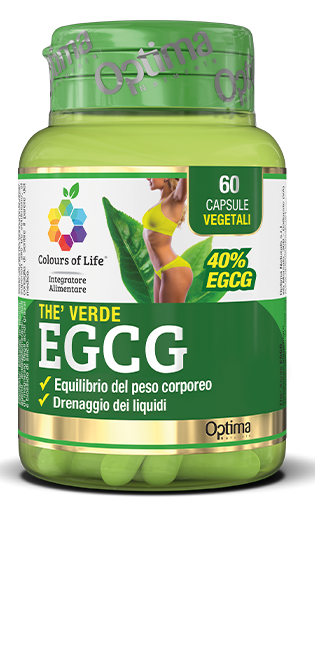BLOG
How to maintain body weight control and drain excess fluids

Why is it important to keep body weight under control?
Achieving and maintaining a healthy body weight is important for health and can help prevent and control illnesses and diseases. As is well known, people who are overweight or obese have a higher risk of developing health problems, including serious ones, such as heart disease, hypertension, type 2 diabetes, respiratory problems and certain types of cancer.
This is why maintaining a 'healthy' weight is important: it helps reduce the risk of developing these disorders, helps you feel good about yourself and gives you more energy to enjoy life.
How to achieve body weight balance
There are many factors that can contribute to a person's weight. These factors include environment, family history and genetics, diet and lifestyle in general. The two variables that can be acted upon to make a difference are diet and lifestyle.
Dietary style
To achieve a balanced weight, the diet should be as varied as possible, rich in mainly seasonal vegetables, both cooked and raw. It should also include the consumption of whole grains, a reduced intake of animal protein, low sugar and low salt.
It is important that most of the foods in our daily diet are fresh and that cooking is short, avoiding high temperatures if possible. Consumption of packaged foods and ready meals, which are generally high in sugar, salt, chemical additives and preservatives, should be reduced.
It is also advisable to find out about drinks and foods that have a purifying and draining function for the body.
Lifestyle and physical activity
With regard to lifestyle, in addition to the classic common sense recommendations concerning so-called bad habits - avoid cigarette smoking, minimise the consumption of alcohol and drugs unless strictly necessary - it is important to pay attention to physical activity and avoid sedentariness.
Our body needs to be in motion, so it is important to set up lifestyle habits that take this into account:
- walking every day at a brisk pace for at least 30 minutes,
- avoid the car and public transport when possible,
- give preference to walking or cycling,
- walking the stairs whenever possible and avoiding laziness.
The importance of draining excess fluid
The problem of excess fluid is commonly called water retention.
It indicates the accumulation and stagnation of fluid in the spaces between cells in the body. The causes may be due to certain diseases (liver disease, kidney failure, hypertension), pregnancy, menopause, or, as in most cases, a sedentary lifestyle and improper diet. The effect of water retention manifests itself in different ways, such as:
- swelling of legs, thighs and buttocks,
- cellulite and skin imperfections,
- abdominal bloating.
In order to combat water retention and drain excess fluid, it is necessary to correct some of the wrong habits by setting up a healthier diet and lifestyle, as described above.
Here are some practical tips for draining excess fluids:
- reduce salt consumption: sodium has the effect of making the body accumulate water, which consequently tends to swell. The amount of salt in a healthy diet should never exceed 2 grams per day. Careful attention should be paid to the salt content of convenience foods, cured meats and cheeses, as well as many baked goods, both savoury and sweet.
- Drink more water: drinking plenty of water, away from meals and at room temperature, hydrates the body and helps the body eliminate excess fluids.
- Physical activity, particularly aerobic activities, such as running and brisk walking, induce sweating and the subsequent expulsion of excess fluids and toxins.
- Following a healthy, balanced diet, increasing consumption of fruit (in moderation), vegetables and vegetables with draining properties. Some examples? Pineapple, strawberries, cherries, peaches, asparagus, spinach, herbs, fennel, pulses, dried fruit.
- Using drainage supplements. To facilitate the reduction of excess fluids, your doctor can recommend specific dietary supplements with a draining function.
Green tea: an ally for controlling body weight
Green Tea, Camellia sinensis L. Kuntze, has long been considered a beneficial ally against adiposity and extra kilos. Green tea is also rich in valuable health elements such as polyphenols and catechins, which have a high antioxidant and draining effect.
In particular, the catechins contained in green tea promote fluid elimination and stimulate the metabolism.
Regular consumption of green tea has some interesting effects on the body:
- stimulates body heat and increases energy expenditure by burning fat faster.
- promotes weight loss thanks to the fact that its molecules stimulate lipolysis, which mobilises fats located in adipose tissue and stimulates their oxidation for energy purposes.
In the case of green tea-based dietary supplements, an extract titrated in EGCG (Epigallocatechine gallate) is preferable, as the substance most responsible for the beneficial properties of green tea: for example, EGCG stimulates the cells of the pancreas to generate more insulin, the hormone involved in the disposal of glucose in the blood.
Article written in collaboration with BenessereCorpoMente.it
Sources and insights
- PubMed, Overweight and obesity in women: health risks and consequences
- PMC, The Medical Risks of Obesity
- PubMed, Green tea for weight loss and weight maintenance in overweight or obese adults
- PubMed, Body weight loss and weight maintenance in relation to habitual caffeine intake and green tea supplementation
The advice is for information only and should not replace medical assistance. Please consult a doctor or health care professional before trying any remedies.
GREEN TEA EGCG









 Optima Naturals S.r.l. ® Via Sempione 124, 21029 Vergiate (VA)
Optima Naturals S.r.l. ® Via Sempione 124, 21029 Vergiate (VA)